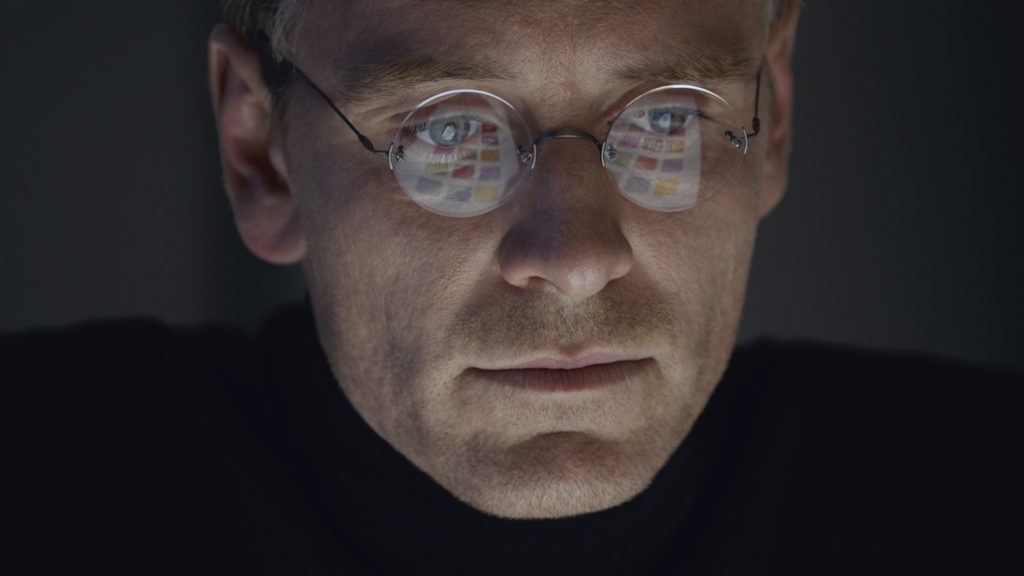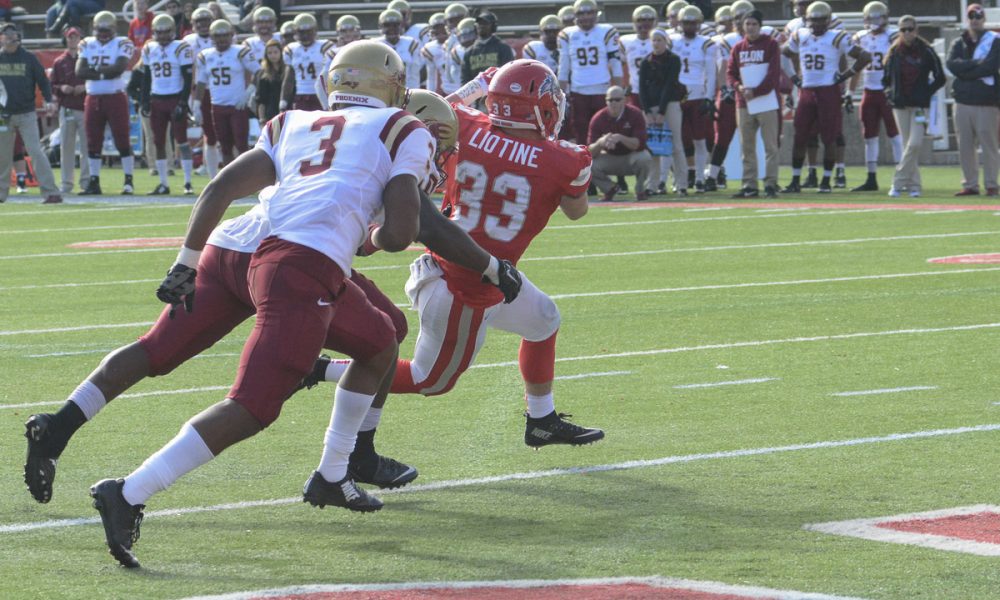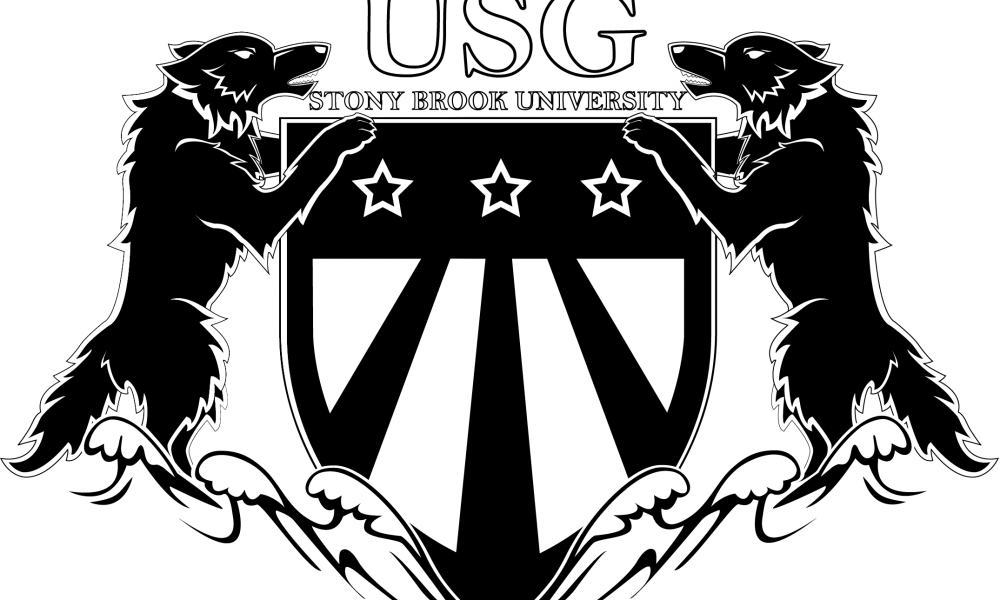It does tend to put in people in a deep thought when they consider Steve Jobs’ entire career. People have what they have today because of the inventions he created. Starting from the simple computers of the 1980’s towards the iPad in the new millennium, all those small innovations have created a cult of obligation to Jobs, and it’s quite apparent that he was aware of that.
I do, however, thank the invention before the man, and that’s the impression I assumed after watching the film Steve Jobs—but we’ll get to that later.
First off, didn’t a movie like this come out not too long ago? Just two years, in fact? Yes, for those who might recall, the film Jobs (2013) was also a biopic on the man of the same name, which starred Ashton Kutcher. To say little of that film, it gained notoriety for being the TV movie in theaters and made simple, tiresome and unfunny of a subject matter that should have been more than it was.
That said, I’m also in an interesting position myself as while I have indeed heard of Steve Jobs, I’ve never been the one to read about his life and career. For a person who has typed this review on a Mac of his own, I ought to know the man who created it. So I was going in blind to this man’s life, you could say.
It succeeds well at getting a viewer interested. It’s very disheartening when a biopic is made, and it only is going to attract the attention of those who only knew that person beforehand. Steve Jobs (the film) allows a very nice draw of attention for a viewer who knows nothing of his life, and explains it well so you know what the whole situation is.
The film, directed by the always boisterous and interesting Danny Boyle (28 Days Later, Slumdog Millionaire and 127 Hours), takes a very different approach to the biopic genre. The film focuses on three sections of Jobs’ (Michael Fassbender) life, which all take place about an hour before he gives a presentation for the launch of one of his computers, intercut with a little bit of historical background to fill in the gaps. The first act starts in 1984 with the launch of Macintosh, followed by the NeXT box in 1988, before ending in 1998 with the iMac.
During these segments we are introduced to several key characters that were in Jobs’ life. You have his always-reliable, confidant Joanna Hoffman (Kate Winslet, in her best Polish-British accent), and Steve Wozniak (Seth Rogan), one of the co-founders of Apple Inc., who argues half the time with Jobs’ over what credit is deserved. There’s also Andy Hertzfeld (Michael Stuhlbarg), another member of the original Mac team, and John Sculley (Jeff Daniels) who was the CEO of Apple. There’s also Katherine Waterston (Chrisann Brennan) as Jobs’ former girlfriend who had a child that is quite obviously his (played through each time frame by the actresses Perla Haney-Jardine, Ripley Sobo, and Makenzie Moss). Oh, and there’s also a woman played by Sarah Snook whose name “Andy” often confuses people with the other Andy and a GQ interviewer played by John Ortiz. Listen well, reader; this’ll be on that final exam.
Basically through the three segments, all these characters go through a bit of a character arc alongside Jobs’ himself, based upon his relationship with them. Of course, because the film sets itself in a mere three days—further, just two hours—it attempts to sum up basically all that has happened in these fourteen years and more.
I’m not complaining too much about this, what’s going on here is just an artistic license to bring an interesting sort of story out, but it feels kind of hackneyed in doing so.It gets especially sappy when the whole father-daughter relationship meets its conclusion.
The performances, however, are good, in that biopic sort of way. The actors all have a nice energy for the person they are playing. They administer personality all throughout and have just as much struggle throughout these events that Jobs must have had. I was glad to see Jeff Daniels again, because I find him a very underappreciated everyman, likeable and convincing regardless of whoever, or whatever, he will be in a movie.
I also liked the editing style; such as the intercut moments between the sections detailing what happened between the years, moving along without being cumbersome. Praise also to the soundtrack for its variety.
But the central issue is Jobs himself. Not Fassbender, not the actor, but the central character.
What I found most interesting in this film was the history. I found it interesting getting to see what people’s expectations were for the Macintosh, the NeXT box and the iMac. It was an interesting historical experience knowing where these brand new creations were taking us and how the film details the issues and the tabloids, such as how a commercial for the Macintosh didn’t even physically show the actual computer. It was interesting to see the history of these creations, of computers generally.
Jobs himself was the central man behind these creations, obviously, but I wasn’t convinced by the film that he was really that important to this history. There’s a point in the film that does express some of that passion: he says to Sculley that he wanted to create something that could give something more to the world, something that could be given to everyone and that they could all share and enjoy using, information on anything, anywhere. Why couldn’t we use more of that? Did Danny Boyle and screenwriter Aaron Sorkin feel that because Jobs was a person so ingrained in our minds that little focus and attention be put upon him? His passion seems to be displaced in the objects of his work, and the views of those around him, rather than the flesh and bone that he has.
There’s a good line that Rogan’s character puts out late in the film. He basically separates the inventor with the invention and says that while the inventions were fantastic, the man behind was a complete jerk. Does this make the film make itself out to be that it was the machine, not the man? I don’t think so, but that sort of belief is kind of cemented in one’s mind after viewing the movie. It overall doesn’t seem to bring passion within the mind of Jobs himself, or maybe even that was the point in itself, but then does that mean that the biopic failed or just being as honest as it needed to be?
The overall conclusion to this film is that it is a very interesting look at history, while many characters—also interesting—surround an otherwise weak central character study. It will appeal to those who loved the man and his work, and it will bring interest from those outside to enjoy it just as much, but you’re only getting so much—like a documentary without the nerve to express raw emotion.
As for Fassbender’s performance…well it wasn’t exactly spellbinding, just good. He’s done better beforehand. The same goes for Kutcher as well– how wasn’t Dude Where’s my Car? such a spellbinding film? (sarcasm)




Comments are closed.